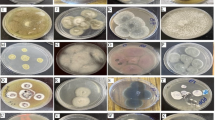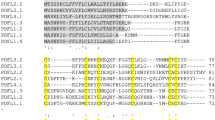Abstract
THE rediscovery of Mendel's classic “Versuche über Pflanzen-Hybriden” must undoubtedly be attributed to the references made to it by Focke in his “Pflanzenmischlinge” (Berlin, 1881). As Dr. Iltis points out in his recent life of Mendel, the fresh movement towards crossing experiments at the end of last century inevitably sent workers to the “Pflanzenmischlinge”, where, unless they were either hasty or careless, they could scarcely fail to come across one or more of the half-dozen references to Mendel's name. But how came Focke to light upon a paper which was so securely buried? Apparently Dr. Iltis propounded this question to Focke himself, who replied that he had come across it in the literature of 1870, but could not then say where. (“Auf Mendels Arbeit bin ich durch die Literatur der 7oer Jahre aufmerksam geworden, kann aber nicht sagen, wo ich sie erwähnt gefunden habe” —Iltis' “Life of Mendel”, p. 204).
This is a preview of subscription content, access via your institution
Access options
Subscribe to this journal
Receive 51 print issues and online access
$199.00 per year
only $3.90 per issue
Buy this article
- Purchase on SpringerLink
- Instant access to full article PDF
Prices may be subject to local taxes which are calculated during checkout
Similar content being viewed by others
Author information
Authors and Affiliations
Rights and permissions
About this article
Cite this article
PUNNETT, R. An Early Reference to Mendel's Work. Nature 116, 606 (1925). https://doi.org/10.1038/116606a0
Issue date:
DOI: https://doi.org/10.1038/116606a0



